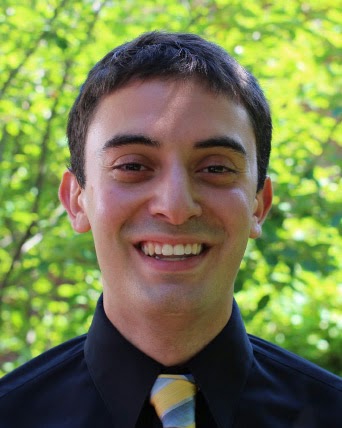 I’m a health educator at Erie Family Health. Like several Amate volunteers, my initial job description isn’t really an accurate description of what I actually do. Sometimes I talk about cavities to Kindergarteners. Sometimes it’s a frank conversation on starting to wear deodorant in the 6th grade. At least twice I’ve had to learn how to say pap smear in Spanish. “Papanicolau” if you’re wondering. But in spite of what I’m teaching, I give the same spiel everywhere I go, no matter where I am. “My job is to teach people how to be healthy, and why it’s important to be healthy”.
I’m a health educator at Erie Family Health. Like several Amate volunteers, my initial job description isn’t really an accurate description of what I actually do. Sometimes I talk about cavities to Kindergarteners. Sometimes it’s a frank conversation on starting to wear deodorant in the 6th grade. At least twice I’ve had to learn how to say pap smear in Spanish. “Papanicolau” if you’re wondering. But in spite of what I’m teaching, I give the same spiel everywhere I go, no matter where I am. “My job is to teach people how to be healthy, and why it’s important to be healthy”.Erie’s mission is to provide accessible, affordable, and high quality healthcare to those in need. I live out this mission primarily through education. The neighborhoods I work most closely with are North Lawndale and West Humboldt Park. The people and students here face several challenges thanks to a complicated history with the city that I still struggle to figure out and understand. They are labeled a lot of things because of where they live, how much they earn, and the color of their skin. But to me as a health educator, I see people who have the same right to good health as any other person.
Using education as a means to achieving good health is powerful to me. Simply said: We are preventing a wound, and not fixing an infection. Although I love education as a whole, to me, the funnest part of education isn’t getting the “how to be healthy” down. Because that’s just me spewing out facts left and right and hoping what I say sticks. It’s a one sided way of doing things and although I have been prepared to provide this information, it is not always the best approach.
For this reason, the exciting part to me is getting at the “why”. Focusing on the “why” allows me for the greatest part of my job: inspiring and motivating others. Inspiring others to take ownership of their health and respecting their bodies by understanding their own feelings and knowledge of health, and why it matters. I may not be here with all of the answers, but I’m at least here to motivate you to find the best answers for yourself. It gives people the autonomy and power to take things into their own hands.
Similarly, when I think of the concept of rebirth, I think of inspiration. An inspiration that isn’t fleeting, but lingers, confuses, moves, and transforms. Amate was the natural part of my journey because I was, and still totally am confused. And better yet, I get to share this journey surrounded by other confused and confusing people. We are all in the process of rebirth.
We are moved by what our service sites throw at us through challenges and moments of grace. We are moved by our neighbors and new housemates/friends, as they reflect our biggest weaknesses and vulnerabilities, along with joys & awesome dinners we cook together. We are moved by the struggle of being away from the loved ones that aren’t in this city, but will always be in our lives. But ultimately, we are transformed to live out our journeys in a meaningful and contemplative way. So I urge everyone to use the holidays as an opportunity to evaluate what moves you, and how have you transformed yourself in the past year.
Amate House is accepting applications for the 2015-2016 Program Year! Our early application is January 15 - learn how to apply by visiting us at http://www.amatehouse.org/Volunteer/HowtoApply.aspx




































